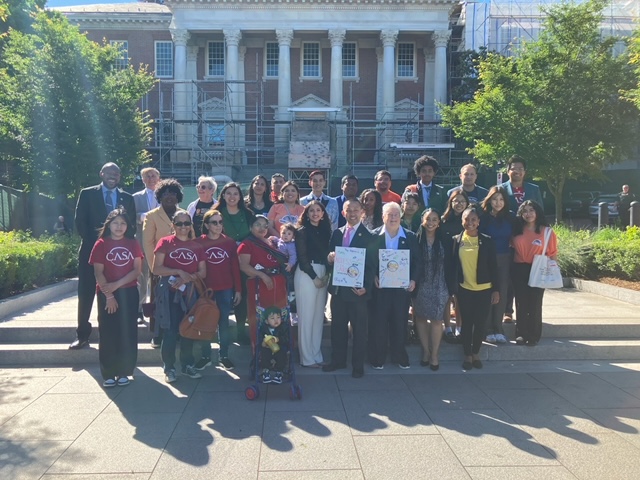Maryland Matters
March 22, 2019
Bruce Depuyt
A bill to rein in prescription drug prices received a strong, bipartisan boost in the House Health and Government Operations Committee on Friday, with the measure’s supporters expressing cautious optimism that Maryland may have found a way to provide consumers relief from unrelenting sticker shock at the pharmacy counter.
But the measure as amended is a far cry from the way it started out.
House Bill 768 establishes a Prescription Drug Affordability Board that will eventually have the power to set “upper payment limits” (what critics call price controls) on medications deemed to be too expensive.
But the board will only have the power to reduce the price of drugs purchased by health plans that serve employees of state and county governments.
In its original form, the bill would have applied to all health plans in the state.
The measure passed the committee 19-3, with House Minority Leader Nicholaus R. Kipke (Anne Arundel County) and three other Republicans voting in favor.
The decision to limit the bill’s scope reflected a concern that attempting to influence the pharmaceutical market, on which so many people depend, could have unintended consequences that might prove harmful to consumers.
“I’m very optimistic that we are going to make progress with this bill,” said Del. Shane E. Pendergrass (D-Howard), the committee’s chair. “It’s fair to be concerned. I’m concerned, too. When you do big things, you always are taking a leap of faith.”
Supporters of the measure say that — if the bill passes, is signed into law and survives any legal challenges that come — Maryland will become the first state in the country to rein in drug prices in this manner.
HB 768 would set up a five-person drug affordability board with the power to set “upper payment limits” on four categories of medication:
— brand-name drugs with have an initial cost of $30,000 per course;
— brand-name drugs whose price increases $3,000 or more per year;
— generic drugs that cost $100 or more and see a price spike of 200 percent or more; and
— any medications that the board determines “create affordability challenges for the state health care system and patients”
“This bill will send a clear message that our state is taking action to help ensure that all Marylanders will have access to affordable medication,” said Del. Harry Bhandari (D-Baltimore County).
“Our country leads the world in the innovation of drug development. … Unfortunately we pay the highest price for drugs compared to other industrialized nations.”
One GOP lawmaker expressed a concern that the measure could lead to shortages of life-saving medications.
“The intent of this entire board is for pricing control,” said Del. Matthew Morgan (R-St. Mary’s). “I don’t see how that doesn’t result in rationing. From a logical standpoint from the company, they would sell it to 49 other states before selling it to us.”
Del. Bonnie Cullison (D-Montgomery), chair of the panel’s insurance and pharmaceuticals subcommittee, noted that the board will be charged with monitoring market supply to guard against shortages.
“The board can re-evaluate their decisions,” she said.
If the legislation is adopted, the board will have a year to get established before it seeks to determine whether a given drug meets any of the bill’s criteria. The panel would have the ability to set upper payment limits beginning on July 1, 2021.
Companies whose drugs become subject of an upper-payment limit will have the right to appeal the board’s decision.
Backers of the measure, including the Maryland Citizens’ Health Initiative, hope to come back in 2024 and broaden the board’s reach, to provide protections for all consumers.
“We are thrilled that the Health and Government Operations Committee has approved a landmark law that will take the first step in the country to do something about escalating prescription drug costs,” said MCHI president Vincent DeMarco.
“This board, by its very existence, will send a signal that Marylanders are tired of escalating drug costs hurting people.”
Early in the legislative session, Gov. Lawrence J. Hogan Jr. (R) said he was well aware of the impact medication expense was having on Maryland residents, but he urged the General Assembly to adopt a fix that can withstand legal challenge.
A measure to rein in the cost of some generic drugs in 2017 was ruled unconstitutional.
bruce@marylandmatters.org
Last modified: March 22, 2019


